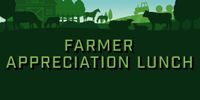The Member of Parliament for Provencher is back in Ottawa and Ted Falk says there is a lot of energy and excitement within his party.
Parliamentarians returned to the House of Commons on Monday for the first time since December 14th. But, prior to that, Falk says the Conservatives held their national caucus retreat last week Thursday through Saturday.
He notes right now what is top of mind is inflation and the rising cost of living.
"We know that Canadians are struggling to make ends meet," he says. "We know that these Liberal policies are making it harder and harder for Canadians to get by, the cost of everything has been rising through inflation."
Falk says there are 1.5 million Canadians using food banks, which is discouraging, though he is thankful for the food banks that are providing a necessary service. Falk says there are also students impacted by the rising cost of living, with many of them still living with their parents or in homeless shelters as they attend college and university.
Falk says at their caucus retreat they also discussed our national debt and how it has tripled since the Liberals were first elected back in 2015.
"The sad part is that Canadians aren't really seeing the benefits of that spending," he says. "In fact, because of the Liberal's reckless spending, we've actually seen inflation and the cost of living is getting more unaffordable for most Canadians. And that's something that we know as Conservatives we need to tackle."
Also discussed was the carbon tax and how the Liberal government plans to increase the rate again in April. Falk says the Conservatives' approach to the carbon tax is to "axe the tax." Falk says carbon tax is not the way to deal with environmental issues, noting that technology is a better way to achieve that.
As for issues currently before the House of Commons, Falk says Bill C-21 is at the committee stage. Falk says his office has been receiving a lot of correspondence on this new gun legislation. He notes rather than going after criminals, this legislation is only going after law-abiding firearm owners.
"We believe in common sense gun control but this is not it," he says.
Falk says the Conservatives will oppose this legislation and in the meantime will put forward amendments, which he guesses will likely be rejected by the Liberal/ NDP coalition. Falk says since Justin Trudeau took office, crime is up 32 percent and violent crimes are up 92 percent.
"And the Liberal legislation like Bill C-75 which was passed last year makes it easier for dangerous criminals to walk free," he adds.
On the topic of health care, Falk says our health care is under a lot of strain right now and he agrees with the Prime Minister that health funding must be tied to health outcomes.
"We need a deal between the feds and the provinces that would fully and fairly fund health care," he adds. "We need to ensure the provinces are providing the outcomes that Canadians expect and right now neither of these is happening."
He notes health dollars need to be targeted towards front-line services such as doctors, nurses, and mental health care workers. Following that, he says we need to remove the gatekeepers that are creating headaches and red tape for Canadians trying to access health care and preventing brilliant doctors and nurses who come to Canada from other countries from getting certified and practicing here.
On the topic of MAID (Medical Assistance In Dying), Falk says many people with mental health issues and disabilities are worried that the Liberal government will expand MAID laws.
"We hear stories where people are so discouraged with the economy and with their ability to get by that they've come to food banks and instead of asking for food they are asking for assistance in providing Medical Assistance In Dying," says Falk. "And so that's a really unfortunate situation."
Falk says over the years he has remained very clear that he opposes MAID.
Meanwhile, back in December, Falk suggested that a spring federal election was likely in the cards. Now, Falk says whether or not that happens is dependent on whether the NDP continues to support the Liberal government. He notes if the NDP can be satisfied with health care spending in the budget, then there is a chance they will continue to work with Trudeau's Liberals. If they cannot, then their supply and confidence agreement with the Liberals will come to an end, which would likely force an election.

















